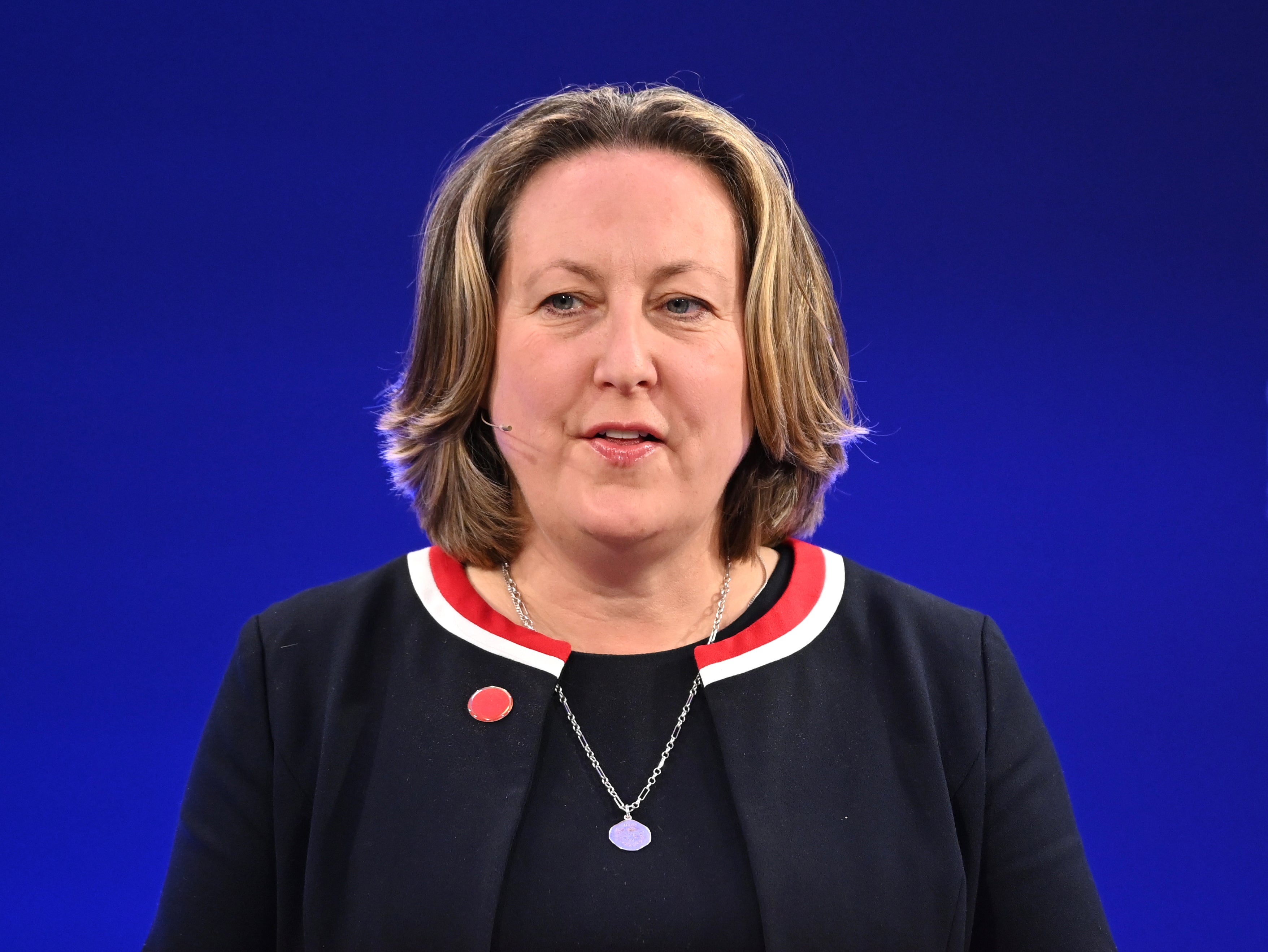Trade secretary tries to kick-start post-Brexit deal with India on Delhi trip
Anne-Marie Trevelyan hoping to land ‘ambitious’ trade agreement after failure to get Delhi interested in 2021

Your support helps us to tell the story
From reproductive rights to climate change to Big Tech, The Independent is on the ground when the story is developing. Whether it's investigating the financials of Elon Musk's pro-Trump PAC or producing our latest documentary, 'The A Word', which shines a light on the American women fighting for reproductive rights, we know how important it is to parse out the facts from the messaging.
At such a critical moment in US history, we need reporters on the ground. Your donation allows us to keep sending journalists to speak to both sides of the story.
The Independent is trusted by Americans across the entire political spectrum. And unlike many other quality news outlets, we choose not to lock Americans out of our reporting and analysis with paywalls. We believe quality journalism should be available to everyone, paid for by those who can afford it.
Your support makes all the difference.Boris Johnson’s international trade secretary Anne-Marie Trevelyan has flown out to Delhi to launch negotiations on a potential post-Brexit trade deal with India.
The cabinet minister is hoping to land an “ambitious” free trade agreement with the country.
Last year, as part of a bid to refresh economic ties, the UK agreed an enhanced trade partnership with India covering health, technology and vaccine development. While this is far short of a full-blown free trade agreement it could eventually form a stepping-stone towards a deeper trade deal.
Other countries, including Australia, have struggled to secure a rapid, comprehensive trade agreement with India. Indeed, the nation has proved a tricky trade partner for the UK and other developed economies in recent years. India suspended a swathe of bilateral investment treaties with major economies in 2017, including one with the UK.
Ms Trevelyan said the talks beginning on Thursday were “a golden opportunity to put UK businesses at the front of the queue as the Indian economy continues to grow rapidly”.
The trade secretary claimed a free trade agreement with India would “show how the deals we negotiate will boost the economies across all nations and help level up all regions of the UK”.
But the Best for Britain campaign group has said claims of prospective deal should be “taken with a large pinch of salt” – given that “historically India starts rather more trade talks than it finishes”.
In May 2021 India agreed to restart talks with the EU on a comprehensive free trade agreement, but progress in entering formal negotiations is said to have slowed since then.
The Department for International Trade (DIT) said the UK wants an agreement that slashes barriers to trading with India’s economy – including cutting tariffs on exports of UK-made cars and Scotch whisky.
Scotch whisky and British cars currently face huge duties of 150 per cent and 125 per cent respectively in India. A deal has the potential to almost double UK exports to the country, the DIT claimed.
Indian prime minister Narendra Modi is believed to have made easier immigration to the UK a key condition for any new trade agreements.
But Mr Johnson said last week that he had ruled out relaxing immigration rules to tempt India into signing a trade deal after a Conservative MP protested at the idea of the country being held “to ransom”.
The prime minister denied there was any plan to ease visa requirements, telling Brexiteer MP Sir Edward Leigh in the Commons: “We don’t do free trade deals on that basis.”
Mr Johnson’s government remains under pressure to achieve new, post-Brexit trade deal with major nations following a series of roll-over deals – copying the terms the UK already had when it was inside the EU – before and after leaving the bloc.
The US has shelved talks, despite a recent visit to Washington by Ms Trevelyan, while farming bodies and environmentalists have attacked the deal struck with Australia for damaging British agricultural exports and lowering standards.
This article was amended on 13 January 2022. It previously referred to an enhanced trade partnership as a sign of the UK’s negotiations for a full free trade agreement with India having been thwarted. However, this was not accurate, as the partnership itself is not a sign of this.
Join our commenting forum
Join thought-provoking conversations, follow other Independent readers and see their replies
0Comments